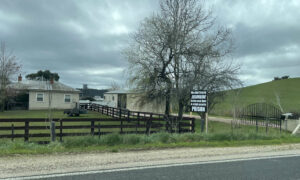And Provide Surety to Customers & Retailers in Transition to FRC
The Tasmanian Greens today detailed an innovative policy to introduce a sliding scale to secure feed-in-tariff and distributed generation incentives in a post Full Retail Competition (FRC) environment.
Greens Energy spokesperson Kim Booth MP said that a strong transitional arrangement for feed-in-tariffs while the electricity reform is achievable, appropriate and necessary, saying the Greens’ position proposed three new key components.
“The Greens are the first of any of the three Parties in the parliament to detail a carefully considered, sophisticated and innovative feed-in-tariff policy position for a post FRC environment,” Mr Booth said.
“After lengthy and detailed consideration, the Greens’ position proposes that as a transitional arrangement, the current 1:1 feed-in-tariff provisions are maintained for new and existing customers for a period of two years following the relevant legislation being in place.”
“We also believe that the sophisticated way to truly provide fair and equitable distributed generation incentives is to introduce a sliding feed-in-tariff scale.”
“There is a need for an independent Panel to be established to consult and advise the Parliament on a fair and reasonable feed-in-tariff to be implemented once the transitional period has expired, including the application of a sliding scale.”
“It is important that businesses that have invested and based their model around the current tariff are protected from sector collapse that would occur it there was a sudden change.”
There are a lot of jobs in renewable energy and the Greens are determined to not only protect those jobs, but grow more jobs into the future.”
“Our policy will deliver those opportunities.”
“Given the lack of a Liberal policy on this important issue, this is also an opportunity for Matt Groom to act on his rhetoric of today, by supporting this innovative proposal and providing it the numbers in the Parliament,” MR Booth said.
Mr Booth also reminded that the Greens’ negotiated in November last year a commitment from the Minister that as part of the electricity sector reforms there would be transitional arrangements for Aurora Energy’s existing customers who currently receive the net feed in tariff as offered by Aurora, and that the Electricity Reform Oversight Committee is to examine the issue of feed-in-tariffs in a post-reform FRC environment, by the 1st of July this year.
Feed-in-Tariffs – post State Electricity Reforms
Tasmanian Greens MPs’ Position on Feed-in-Tariffs:
That the Tasmanian Greens MPs adopt the following policy on feed-in-tariffs for small scale generators (below 10 Kw):
1. No feed-in-tariff or connection to a grid will be allowed unless it is from 100% renewable generation.
2. For the removal of doubt, Bio mass generation from native forest is specifically excluded.*
3. Retailers will be required to purchase power from small-scale renewable generators.
4. As a transitional arrangement, current 1:1 feed-in-tariff provisions to be maintained for new and existing customers for two years following proclamation of legislation relating to feed-in-tariffs. The price difference between the combined cost of wholesale power price and distribution charges, and the feed-in-tariff, to be met from the Consolidated Fund.
5. That an independent advisory panel be established with appropriate representation from a range of relevant stakeholders to consult widely on feed-in-tariff/distributed generation incentives, including the potential for a sliding feed-in-tariff scale based on the type of system, and to provide greater incentives in areas, for example, of supply constraint, and;
The Panel is to:
a) Taking into account social, economic and environmental considerations, provide advice to the Minister and Parliament on a fair and reasonable feed-in-tariff for the first two years after the expiry of transitional arrangements;
b) Recommend an ongoing process to determine the mechanism for setting a fair and reasonable feed-in-tariff into the future.
*Except for genuine by-product generated on site from operations which have a primary purpose that is not electricity generation, ie a country sawmill.
Kim Booth MP Greens Energy spokesperson Thursday, 11 April 2013

























